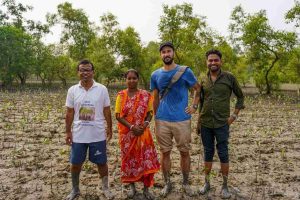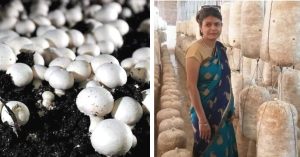TN Woman Doubles Income Through Organic Farming, Builds Better Future for Daughters
P Bindu from Theni, Tamil Nadu, started farming after her two daughters joined school. Through her innovative farming methods and enterprising nature, she today sells value-added products like sun-dried vegetables and podis (powders).
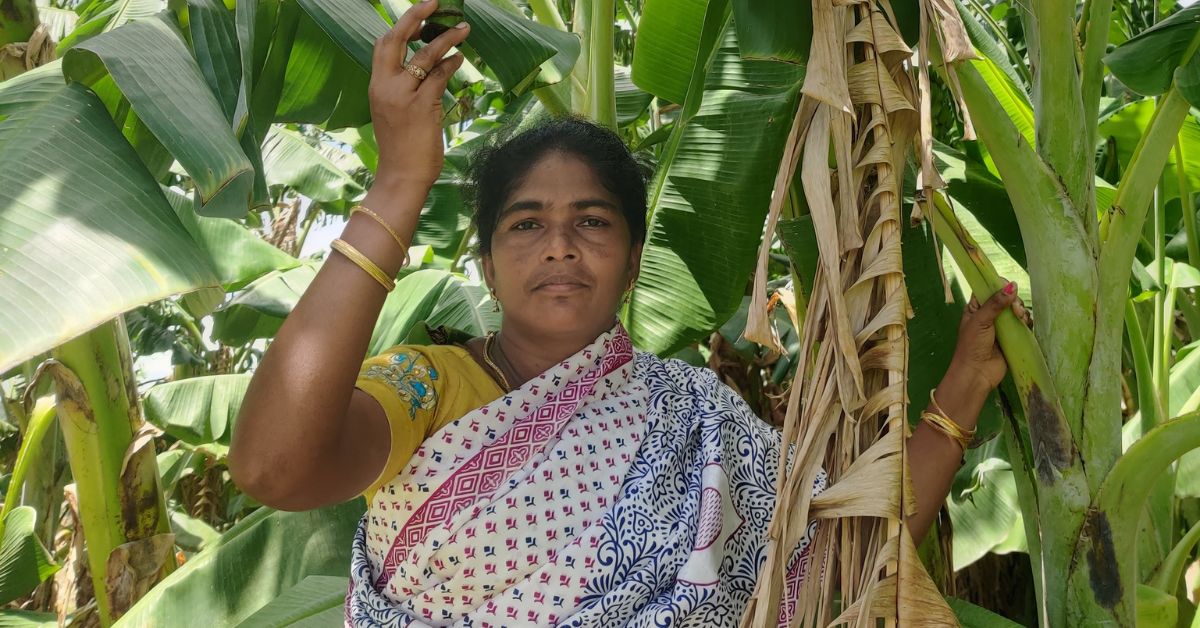
P Bindu, an organic farmer from Tamil Nadu, got married when she was barely 18 years old. She had also managed to study only till Class 10. While she resigned to her fate, she wanted to give her daughters a better life. Married to a sugarcane farmer, she decided to step onto the field herself for her girls.
And her efforts bore fruit and how. Not only was she able to pay for her daughter’s education in good schools and colleges, but she also won awards for her innovative farming methods.
Till her girls were young, Bindu was busy with them. But once they started going to school, the 42-year-old started going to the fields, foraying into the world of agriculture. With years of training and on field experience in hand, she started her own brand Pasumai in 2020 with 12 other women under her.
Now she sells value-added products like vathals (sun-dried vegetables), idli podi (powder), lemon podi, coriander powder and more. Today, her brand sells more than 100 packets of these products per month, she proudly shares.
So how did Bindu turn her life around? Read on ahead as she shares her story with The Better India.
Sealing a better future for her daughters
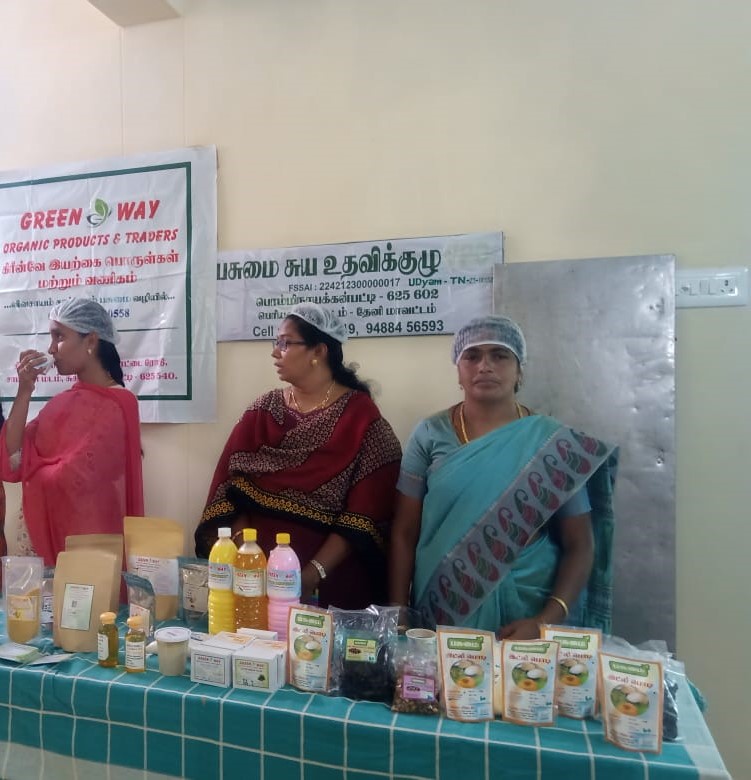
Let’s rewind time to 1998, when Bindu and her husband, Pitchai, got married.
Pitchai’s family cultivated sugarcane on their five acre land in Bomminayakanpatti village in the Theni district in Tamil Nadu. But they were burning their fingers in keeping the farm running.
“Sugarcane is a labour and cost-intensive crop. We would incur a lot of expenses which we paid for by mortgaging our jewellery. We got about Rs 80,000 per year through this, which after cutting other expenses and labour costs, would not even be enough for our daughters’ school fees,” Bindu says.
According to Bindu, most farmers in and around their village and Theni, grow sugarcane and cotton. She decided to start growing different crops, with the hopes of them yielding more income.
“We used to grow paddy and sugarcane. I knew that I had to do something different on our farm, as farming is the only thing we know. I also wanted to increase our income for the sake of my daughters,” she explains. They first started growing corn and brinjal on their farm.
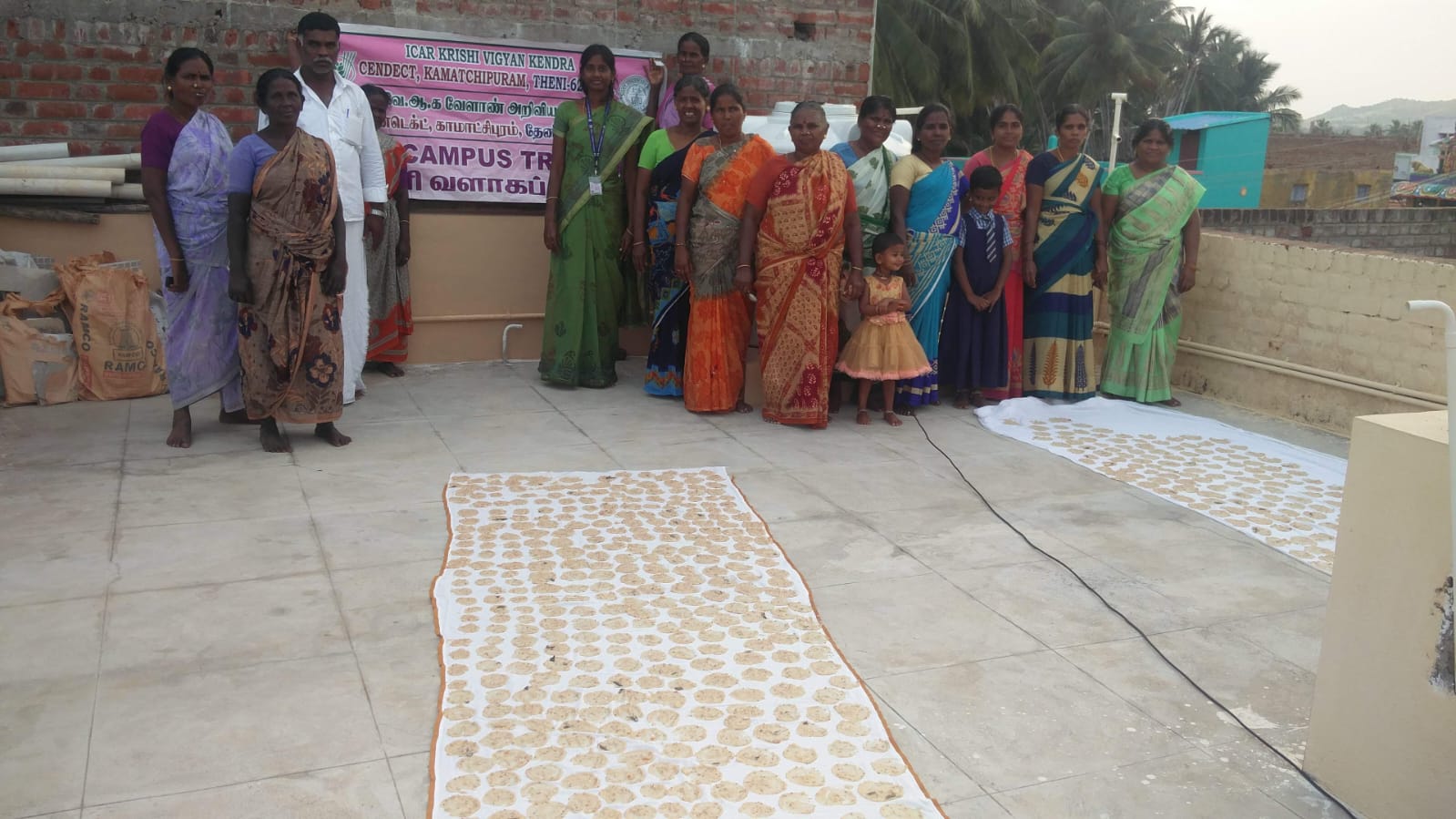
As this was also the first time that Bindu really stepped out of the house and “saw the real world”, she came to know of self-help groups (SHGs) and joined one. This gave her an opportunity to see what others in this field were doing.
“I was introduced to many women who were, in their own small ways, supporting their families. It was very inspiring to see that. Through this SHG, I also went for some programmes of the agriculture department of the state and learned of the Krishi Vigyan Kendra (KVK),” adds the farmer.
The agriculture department distributed lentil and millet seeds and in 2019, Bindu started growing sorghum (jowar or cholam), pearl millet (bajra or kambu), and urad dal. Shortly after, she started organic farming.
“I attended a KVK workshop where they told us how to farm without using pesticides. I made a pesticide composition at home by mixing ginger, garlic, and pepper. You just need to add 100 ml of this mixture to 15 litres of water. Not only does it keep insects away, but I’ve never seen shinier brinjals!” says Bindu.
In 2020, she started growing bananas, which take about 8-12 months for a yield. The enterprising farmer wasn’t going to wait for so long. She decided to grow some vegetables through inter-cropping, which would fetch a yield fast.
“I started growing toor dal, tomatoes, ladies finger through the method of intercropping. These crops could be taken out in four months, and provided us with a supplementary income,” explains Bindu.
Setting up a small enterprise
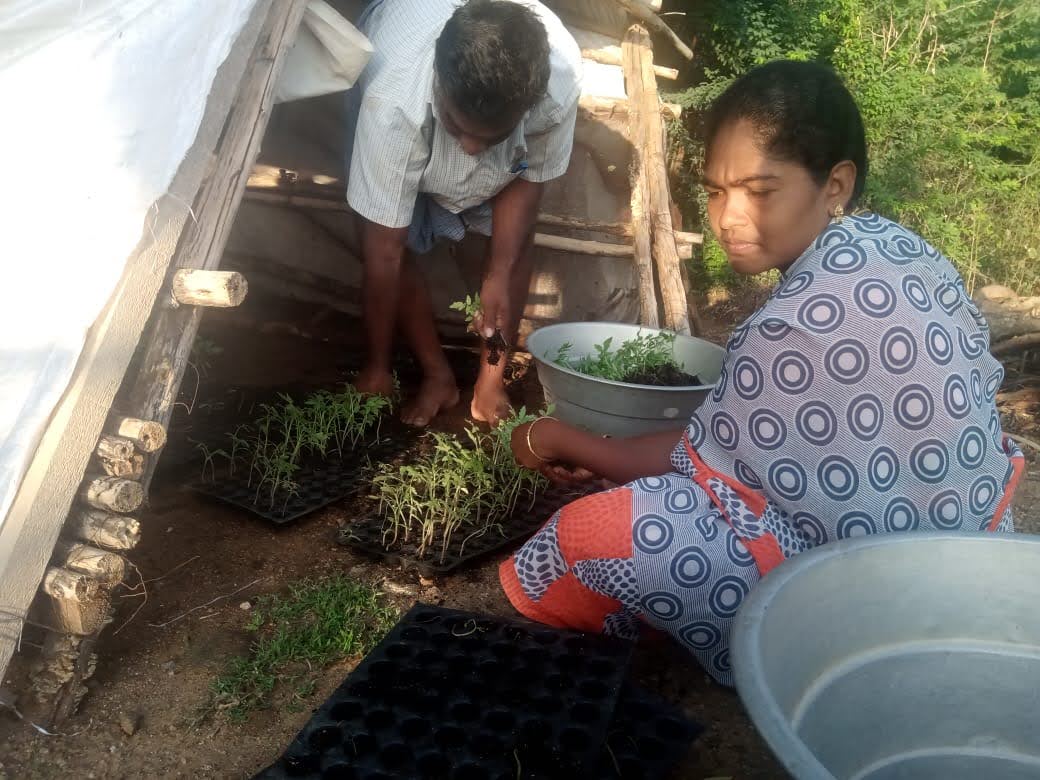
As the first experiment was a success, she then grew coriander seeds, bitter gourd, and other vegetables.
However, as the yield increased, so did the wastage. Many of the vegetables were rotting away and had to be thrown when the prices were low. An attempt to save these vegetables brought out the businesswoman in Bindu. What do you do to save a rotting vegetable? Well, you make yummy vathals.
“I underwent training on post-harvest processing and packaging of these dried vegetables and value-added products at KVK. I also learnt how to market them. I wanted to maximise our produce and make use of every product more judiciously. I got all the relevant food safety certificates and Udyam certificates (a mandatory registration for micro, small and medium enterprises),” adds Bindu, which led to her own venture, Pasumai.
She is able to sell her products locally, at KVKs and colleges.
She now wants to scale up her production and has taken a loan from the district industrial centre to purchase grinding machines. She has also bought a solar dryer which would make the drying process of the vegetables more efficient.
Through her efforts, her older daughter has completed her masters in engineering and her younger daughter is pursuing a BSc nursing course. In just three years, she has set up a small enterprise, which she is scaling up, through her innovations.
“I just started this out of an interest in farming; that’s all I knew in life and I’m glad that it helped my original goal of giving my daughters a good education. I want to train more people now and bring them forward as well,” says Bindu.
Edited by Padmashree Pande
If you found our stories insightful, informative, or even just enjoyable, we invite you to consider making a voluntary payment to support the work we do at The Better India. Your contribution helps us continue producing quality content that educates, inspires, and drives positive change.
Choose one of the payment options below for your contribution-
By paying for the stories you value, you directly contribute to sustaining our efforts focused on making a difference in the world. Together, let's ensure that impactful stories continue to be told and shared, enriching lives and communities alike.
Thank you for your support. Here are some frequently asked questions you might find helpful to know why you are contributing?






